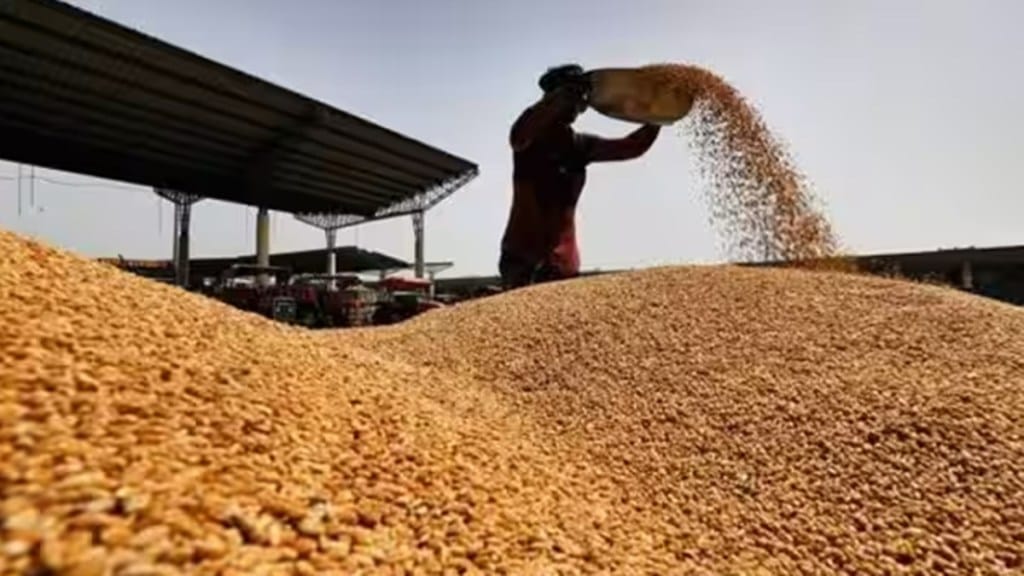For the first in the many years, the Food Corporation of India (FCI) has not availed the provision of short-term credit to meet its operational expenses in the current fiscal year, due to timely release of funds by the finance ministry towards food subsidy expenses.
Officials said that adequate provisioning of food subsidy expenses especially in the last three fiscals by the finance ministry has ensured that the outstanding short terms loans of FCI on March 31, had declined from Rs 40,700 crore in 2019-20 to only Rs 3,000 crore by 2022-23.
During the April-July period of the current fiscal, against a subsidy estimate of Rs 1.38 trillion for 2023-24, FCI has received Rs 50,770 crore from the finance ministry till July 31, which according to officials, is sufficient to meet expenses towards food grains procurement and distribution to states.
“The finance ministry has been releasing subsidy expenses amounts virtually on a weekly basis and thus there is no reason to avail short-term loans which was a norm few years back,” a food ministry official told FE. The centre routes 70% of its food subsidy budget through the FCI.
FCI is mandated to receive short term loans of Rs 75,000 crore for current fiscal which are of 90 days duration from scheduled banks to meet out cash flow mismatches and to provide temporary working capital to the Corporation.
Officials said out of total borrowing of FCI of Rs 45,794 crore by the end of July, a major chunk includes Rs 36,700 crore worth of bonds which are payable during 2028-30.
The corporation has received Rs 7800 crore as wage and means advances by the government in the current fiscal. Out of the sanctioned cash credit limit of Rs 6000 crore for current fiscal, FCI has availed on Rs 1242 crore so far.
The centre since January this year has been providing foodgrains free to states under Pradhan Mantri Garib Kalyan Anna Yojana (PMGKAY) or erstwhile National Food Security Act (NFSA).
According to budget estimates, FCI’s economic cost which includes minimum support price (MSP) to farmers, storage, transportation and other costs of rice and wheat for 2023-24 is Rs 39.18 and Rs 27.03 per kg, respectively.
The annual cost to the exchequer for providing free grains under NFSA is estimated at Rs 2 trillion for 2023-24. The centre allocates funds under food subsidy to FCI and states following a decentralised procurement model.
The corporation has been relatively comfortable in recent years with the cash position as the government promptly released food subsidy amounts, after the practice of taking National Small Saving Fund (NSSF) loans for subsidy financing was stopped in the FY22 Budget for the sake of fiscal transparency.
Due to huge deviation between rising expenses because of open ended procurement of rice and wheat under MSP operations from farmers and cost of carrying excess stocks, the government had provided loans from NSSF during 2016-17 to 2020-21 to FCI, in lieu of food subsidy.
Finance minister Nirmala Sitharaman in her budget speech for 2021-22 had announced ending the practice of extra-budgetary borrowing from next fiscal by making provisions of Rs 3.85 trillion towards payment of NSSF loans.
FCI procures and distributes more than 60 million tonne (MT) of wheat and rice annually. The corporation manages procurement, storage and transportation of rice and wheat to states for distribution, mainly for the NFSA and other welfare schemes.


